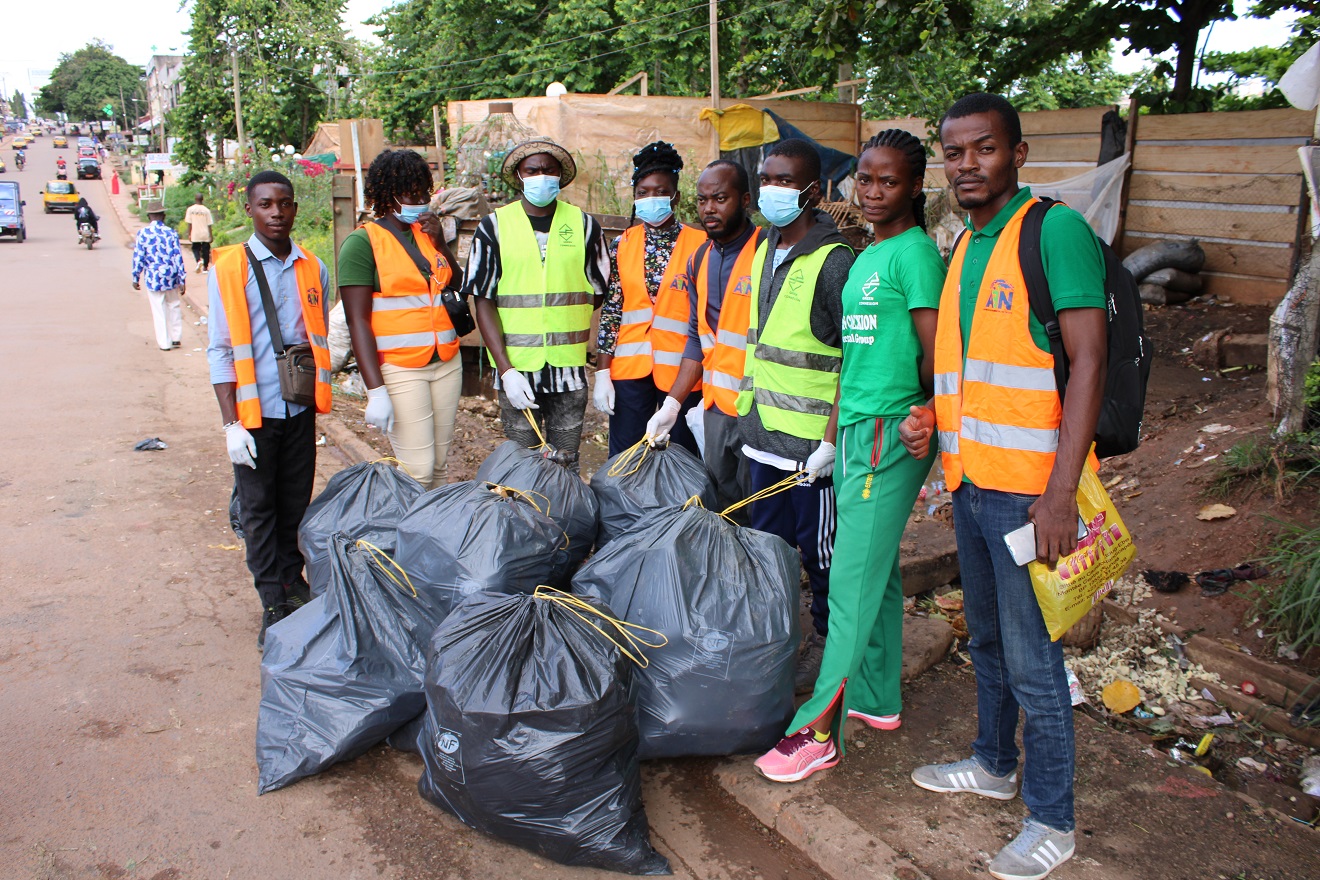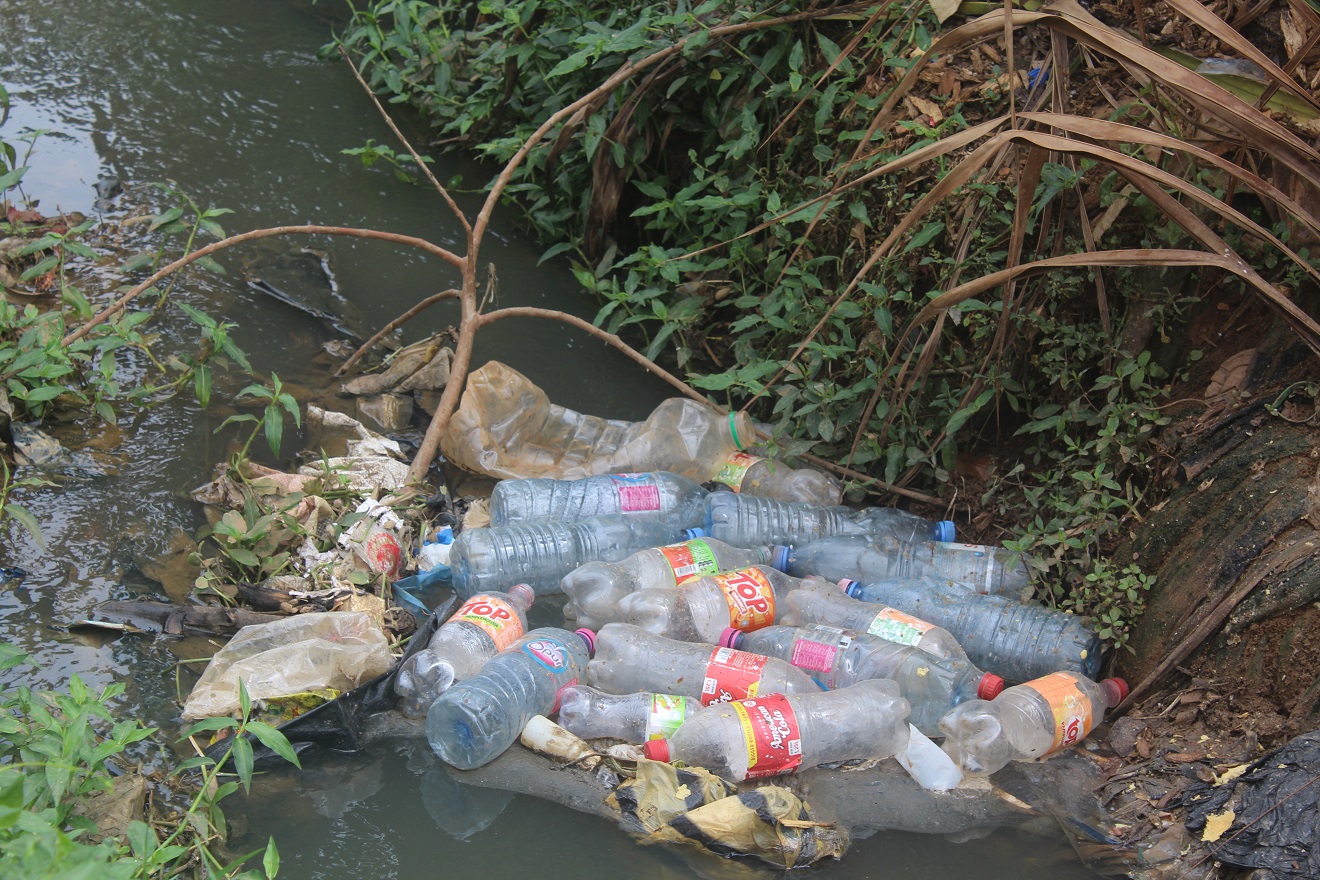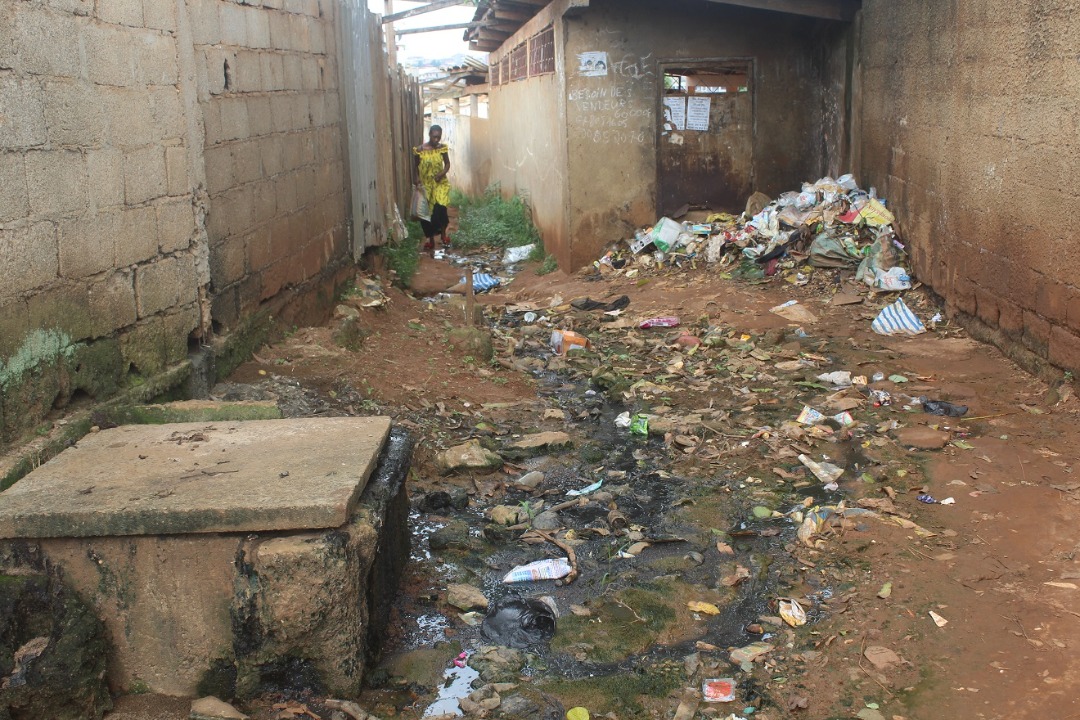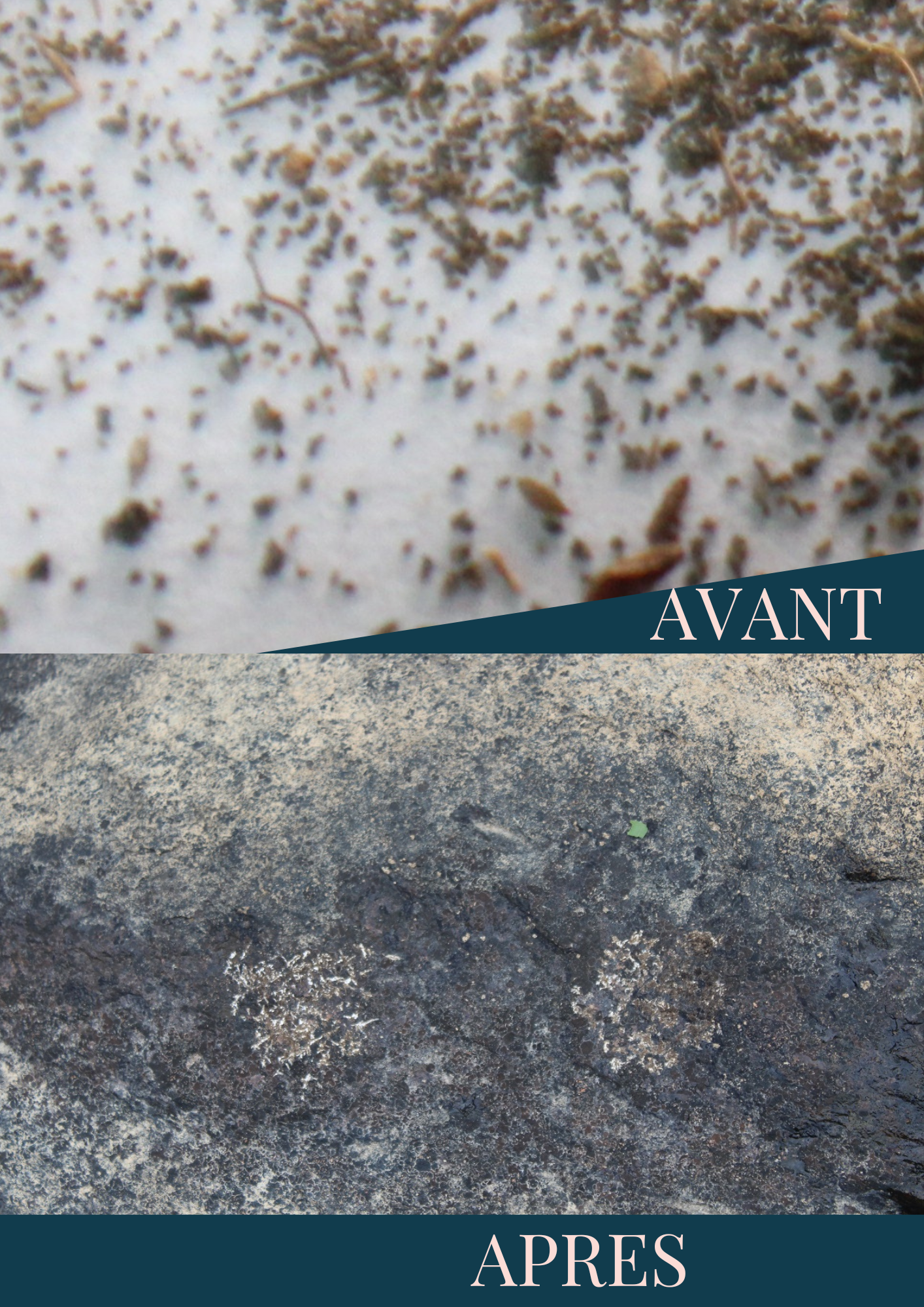

Like every year for almost 10 years, Green Connexion will join the international community to celebrate the International Day of Biodiversity 2024 (https://www.un.org/en/observances/biological-diversity-day ).
The theme this year 2024 “Contribute to the Plan”, implied The plan for Biodiversity For life on earth (https://www.cbd.int/gbf ), is a call from the heart for total participation in the conservation effort, given the significant challenges to be met, namely achieving the 4 objectives of 2050 and the 23 targets for 2030.
Green Connexion will organize a talk on May 22 at its headquarters in Yaoundé on the theme “Contribute to the Plan”. A banner celebrating the theme has already been deployed.
Today, April 22, marks the 54th edition of Earth Day, an annual event dedicated to raising awareness of the importance of nature and the need to preserve our planet. It’s a crucial moment to remind everyone on Earth of the urgency of protecting our ecosystems and taking action to counter the environmental challenges we face.
The objectives of this day, according to the United Nations, are clear: to recognize that the Earth and its ecosystems are our common home, and that it is imperative to protect them in order to improve people’s living conditions, combat climate change and halt the loss of biodiversity. Issues such as deforestation, soil and water pollution, intensive agriculture and illegal wildlife trafficking underline the urgency of raising awareness of the need to preserve our planet. It is therefore essential that the UN and governments around the world make tangible commitments to protect the climate and biodiversity.
On this International Earth Day, it is vital to promote a transition to a more sustainable economy, one that promotes the well-being of both humanity and the planet. It’s no longer just a wish, but an absolute necessity that we live in harmony with nature and the Earth.
It’s essential to mark this date and to carry out strong actions in the future to shine by example, to continue to raise awareness in the future to act in favor of our environment. Each and every one of us has a role to play in the fight to preserve our planet for future generations.
On Saturday 16 September 2023, to mark World Clean-up Day, GREEN CONNEXION and 12 other organisations with a shared vision (protecting the environment) took part in a campaign to collect plastic waste. The event was organised jointly by the Let’s do it Camerooon consortium, the Ministry of Housing and Urban Development and the municipality of Yde 3.
In addition to those mentioned above, the event brought together a number of other associations, including the Association des jeunes volontaires de Ngoaekelle, Touproprecamer, Water for life cameroon, AJACCGF, Clean environment for Africa, Mboa hub, CNEDD, Gic agro-solution, CONAPRODD and Les Petits bambous.
The initiative was inspired by the theme for 2023: “Let’s get involved in the fight against plastic waste pollution”.
At the end of the collection, the waste collected was given to Eco green, a recycling company, for processing.

The campaign took place in the commune of Yaounde 6. The first collection area was Chapelle Obili, the second Carrefour Kameni, the third Ecole de Source, the fourth Lycée de Biyem-assi and finally the Accacia district.

At the end of the collection, the waste collected was handed over to Name Recycling for processing.

Green Connexion and the environmental impact of urban disorder
World Environment Day, which is celebrated every 05 June, has as its theme this year: “Solutions to plastic pollution”, and is directly in line with the current concerns of Green Connexion, whose aim is to study the environmental impact of urban disorder in Cameroon.
Cameroon’s political capital, like other cities around the world, is experiencing strong population growth, resulting in anarchic construction that stands out for its insalubrity.

Household waste dumped near a faulty septic tank
This urban disorder is reflected not only in the deterioration of transport infrastructure, but also in the uncontrolled dumping of plastic waste and various effluents.
The large-scale contribution of urban disorder to climate change is a detail that is often unknown or overlooked by political and economic decision-makers. Indeed, “CO2 emissions vary according to the state of the road and the state of our environment”. These two aspects may seem trivial, but in a context such as that of the city of Yaoundé, the capital of Cameroon, for example, where sanitation services are not regular and road infrastructure is mostly in poor condition, the increase in GHG emissions is necessarily tenfold.
So we need to do something about it. It starts with each and every one of us:
I’m responsible for the waste I produce, so I recycle it. This would also contribute to the development of the green economy.
The theme for 2023, “Solutions to plastic pollution”, is one that Green Connexion fully supports and on which we are actively working.

Green Connexion is heavily involved in the process of rebuilding biodiversity through the effort to change the status of threatened species. This involves a gradual and long-term process of multiplying sub-populations and increasing their size.
This is the case for threatened species such as:
Eremospatha barendii (CR) ; Cola hypochrysea (EN) ; Trichoscypha hallei (EN) and Hypolytrum unispicatum (EN).

On the 28th of March 2023, a meeting of the members of the IUCN Cameroon National Committee was held at the headquarters of the IUCN National Office – Cameroon. Green Connexion was represented at this meeting. The objective of the said meeting was to review the activities of the Cameroon committee so far and to define the main orientations of future actions to be carried out for the good functioning of this committee.
As planned in the agenda, the meeting started with a word from the IUCN Director for Central Africa, Mr Kennet ANGU ANGU, who welcomed the participants and urged the members to continue the noble cause of protecting our dear Biodiversity; he also invited the members to work more in synergy for more efficiency. Before retiring, he wished that the activities would be carried out in good conditions and that everyone would return home smoothly.
After this welcome, the President of the National Committee of IUCN members, Prof. Roger Ngoufo, made a speech which was essentially based on the need and importance of this meeting. He ended his speech by inviting each representative to introduce himself and his organisation as well as its main activities.
After the presentation phase, the regional facilitator, Ms Eva MOUZONG, took the floor to briefly present IUCN at the global, regional and national levels. Overall, we can note that :
After this session, the president took the floor to inform the participants about the history and the state of affairs of the Cameroon Committee:
Proposal of the new bureau:
Communication officer and in charge of relations with specialised commissions: Green Connexion
Other perspectives
After this phase, the word was given to the administrations who made the recommendation that IUCN should seek to meet with the different Ministers to present their action plans in order to obtain the requested support.
The exchanges were closed at around 2pm with a family photo.
In 2019, WHO and UNICEF agreed that 2.2 billion people still lack access to safe and continuous drinking water. Cameroon is among the countries with the most critical situation with 34% of the population without access to safe drinking water.
Therefore, on this day, GREEN CONNEXION advocates for increased budgetary allocations in the water, hygiene and sanitation sector, for better access for all and to better respond to the health shocks we experience every day.
It is also an opportunity to advocate for the acceleration of projects aimed at the sustainable management of this natural resource.
Still called the green lung of the planet, the forest in one way or another is linked to our daily life. Among its many ecological benefits, it is important to remember on this day that forests contribute to water and air quality through their role in preserving and purifying the environment.
It is therefore mandatory to act in favour of forests because healthy forests are necessary for healthy populations.